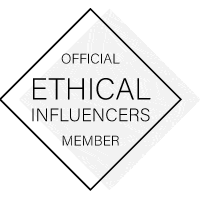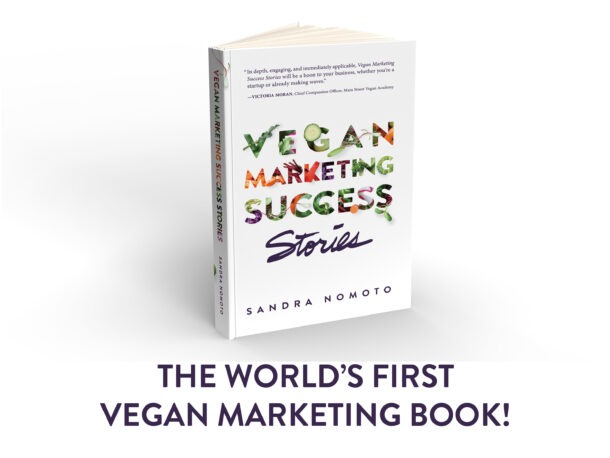The most updated book on why to go vegan
It’s hard NOT to have discovered This is Vegan Propaganda (And Other Lies the Meat Industry Tells You) because Ed “Earthling Ed” Winters is one of the most notable vegan influencers around today.
Fun fact: My book and this one are both Vegan Choice Award winners, so it’s the one degree away I have from Winters.
Published by Vermillion London, a division of Penguin Random House, this is today’s quintessential nonfiction book on why to go vegan. It takes all the points Winters has in his ebook, 30 Non-Vegan Excuses & How to Respond to Them, and all the points he makes in his viral YouTube videos and condenses it all into a book, with references included.
While this book isn’t a memoir, Winters sprinkles in a bit of his own story on how he went vegan and empathizes with the presumed omnivore reader throughout.
Here are some highlights I found interesting:
- He addresses the usual excuses people have for consuming animals. For example, supposedly our brains developed because we ate meat. Potatoes are more likely the cause (it’s hard to function mentally without carbs); dental plaque found in the teeth of early humans contained bacteria that broke down starch.
- History of agriculture, including grafting calves to mother cows (farmers skin calves and tie body parts onto living calves with twine to mimic a newborn), corruption in the early dairy industry, and the amount of waste produced.
- Farmers and industry groups with animal welfare programs have committed thousands of illegal breaches that have gone unreported.
- Winters goes into the conditions that pigs, cows, chickens, sheep/lambs and fish live, and their fate. He also talks about the conditions of the people who work in processing plants and slaughterhouses.
- Environmental impacts of animal agriculture on land, air, and water are discussed. For example, buying tofu from soy grown in France is more environmentally friendly than consuming locally grown beef.
- 75 to 80% of soy produced globally is used for animal feed.
- Farming is the largest contributor to water pollution, with dairy having the highest number of incidents.
- Commercial bottom trawling produces 1500 metric tonnes of carbon dioxide annually, more than the aviation industry. The highest impact farmed fish produce more emissions than beef!
- Winters talks about how reducing meat consumption helps to avoid future pandemics. Experts call COVID-19 “a dress rehearsal” as it was only a category 2 of 5 on the WHO’s pandemic scale. He also goes into the history of zoonotic diseases.
- He also talks about food-borne illnesses. Sixty to 90% of animal products in the USA are contaminated with E.coli, and plants are contaminated because of manure-contaminated water. I watched Poisoned on Netflix last month about this—highly recommend and including the trailer below. It’s based on the book of the same name by Jeff Benedict.
Highlights continued:
- Winters talks about antibiotic use in animal farming and antibiotic-resistant diseases.
- He goes into the nutrition present in a vegan diet, and how it can reduce one’s chances of heart disease, stroke, dementia, type 2 diabetes, and cancer.
- He also discusses ag-gag laws effective in many places like North America. In Iowa, they can jail you for two years for filming animal abuse, which is the same sentence the animal abuser would receive.
- He talks about cognitive dissonance. I love the example he gave of firefighters in the UK who rescued 18 piglets and 2 sows. The farmer of those animals gave the firefighters sausages made of those piglets to thank them.
- Farmers in New South Wales now refuse to say “slaughter,” instead calling it “harvesting” and “processing.”
- Winters talks about the portrayal of vegans in the media as militant, problematic, and dangerous (which has to change!).
- He talks about animal agriculture’s advertising, which has included farms with high standards, happy animals, green pastures, and red barns common on packaging: the sentimental idea of farming.
- The EU and many of the United States have bans on labelling plant-based food and beverages as “milk,” “meat,” etc.
- In the US, they spent $100m on lobbying, and $26m on political campaigns contributed by the meat industry.
- In the UK, farmers who have co-developed the country’s pro-dairy nutritional guidelines fund the Agriculture & Horticulture Development Board (AHDB), a clear conflict of interest.
- Winters talks about the marketing of meat to men, who often need social permission NOT to eat meat and say they experience social isolation because of this.
- He finds it easier to speak about veganism to farmers vs. his own family, but provides tips for vegans having conversations with non-vegans.
- He suggests we tax animal products (20% unprocessed, 110% processed) for their cost to society and I’m all for this! This would reduce 220,000 deaths and save 130 billion pounds in the UK each year.
- Costa Rica has stopped deforestation and taxed fossil fuel companies. As a result, it’s recovered 60% of those forests.
- Finally, a more vegan world would lead to better jobs, vertical farming, and even cultivated meat.
Want the book? Get it on Amazon Canada or Amazon USA here.
Need a book coach, ghostwriter, or editor to help you create your non-fiction book so you can get it in the hands of readers? Read more about my services here and contact me if you’re ready to begin!






